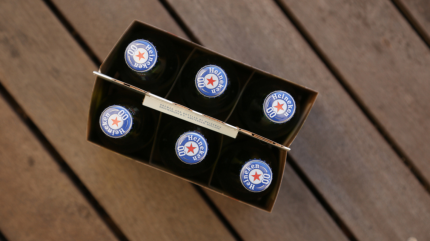
A strike by workers at a Heineken plant in South Africa over shift patterns has been deemed unlawful.
Staff at Heineken’s facility in the city of Gqeberha are seeking a return to a three-shift system at the plant. The site had recently moved to two shifts that included weekend work, a move for which staff felt they had not been correctly compensated.
Members of the FAWU union engaged in industrial action outside the site, a move found by South Africa’s labour courts to be unlawful.
“We are pleased with the labour courts’ interim court order to declare the recent FAWU strike at Heineken Beverages Gqeberha plant as unlawful,” a Heineken spokesperson said.
“While we fully respect the right to strike in accordance with the law, the actions taken by the union are not in the best interests of our workers nor the company.”
Heineken refutes allegations it had not consulted with workers regarding adjustments to shift patterns. The company said it had “engaged colleagues and unions extensively” on the changes.
How well do you really know your competitors?
Access the most comprehensive Company Profiles on the market, powered by GlobalData. Save hours of research. Gain competitive edge.

Thank you!
Your download email will arrive shortly
Not ready to buy yet? Download a free sample
We are confident about the unique quality of our Company Profiles. However, we want you to make the most beneficial decision for your business, so we offer a free sample that you can download by submitting the below form
By GlobalDataThe brewer added it had measures in place that “minimise disruption” to the production site.
Heineken said the change in shift patterns was temporary and a three-shift system was now operationally required.
The Gqeberha production site was originally under the control of Distell Group, which Heineken acquired last year. The Dutch brewer took over both Distell Group and Namibia Breweries, creating a new company, Heineken Beverages, that oversees its operations in the region.
The move solidified Heineken’s position in Africa, as Distell Group was a major player in ciders, flavoured alcoholic beverages, wines and spirits across the continent, while Namibia Breweries is the beer market leader in Namibia.
The proposal was met with resistance from parties including Anheuser-Busch InBev’s South Africa Breweries unit, which reportedly claimed Heineken’s takeover of Distell would remove an effective competitor in the market for cider. However, the deal was approved by South Africa’s Competition Tribunal.



